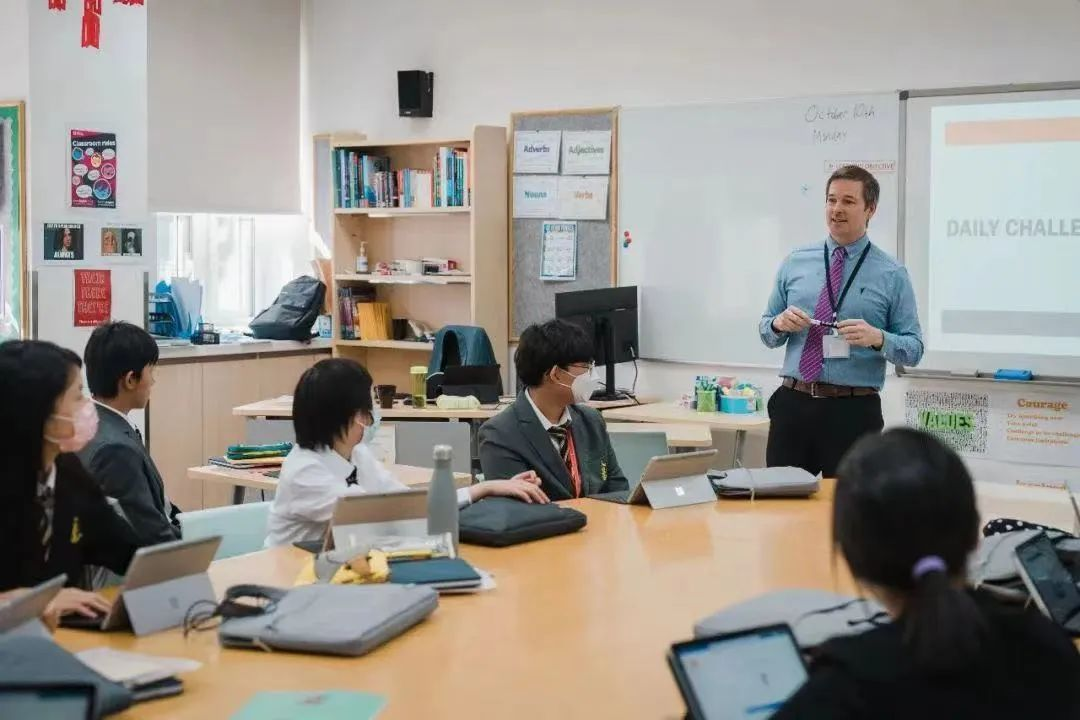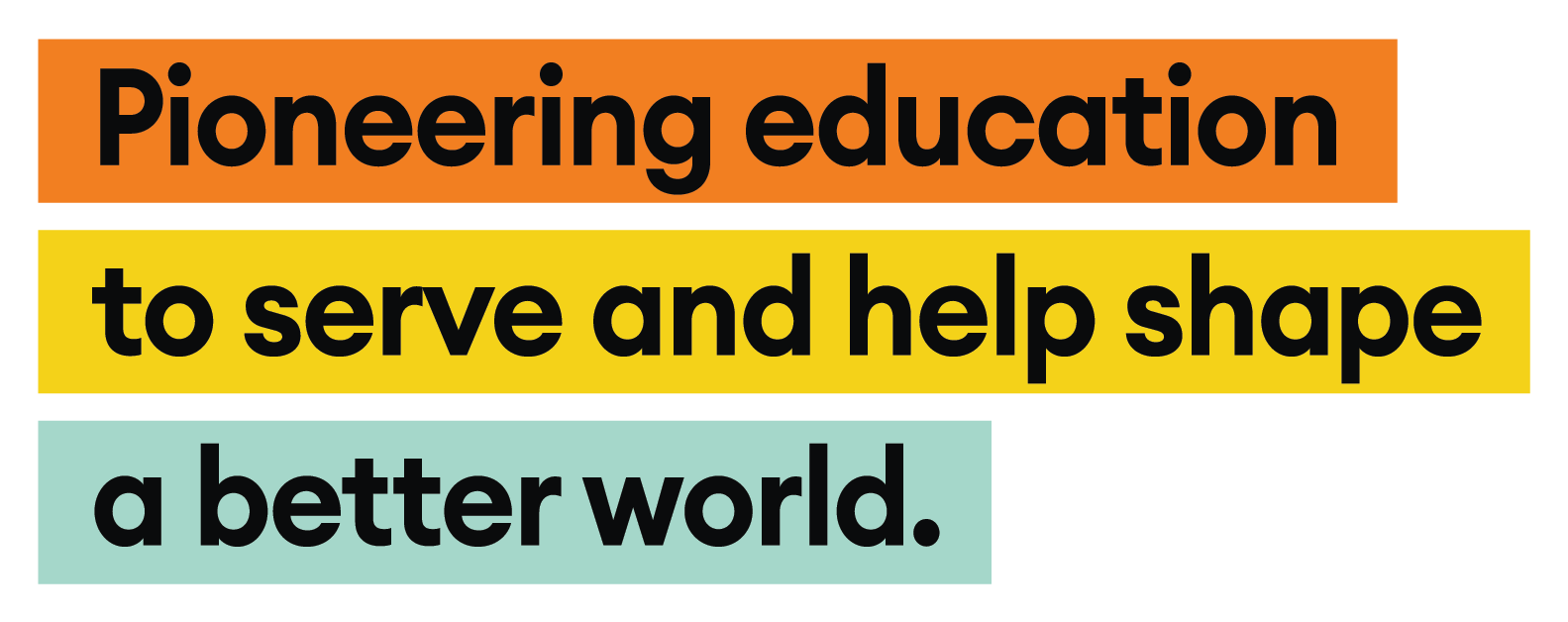Creating an environment of respect, trust and openness
Cultivating respect
Respect is important enough to be enshrined as one of our five Wellington Values. This academic year, we decided to make it a focus. Of course, we expect our pupils to live this value, but our staff must also lead by example, so we spent a lot of time thinking about ways that we can truly demonstrate and embody the Wellington Value of Respect. We asked ourselves, “What does respect for our environment look like in a science lab? What does it look like on the football pitch? What does respect for our peers look like? For our teachers? And, vitally, what does it look like for all the adults on campus, like the cleaning staff, food service workers and security guards who keep our schools running?”
Our pastoral team at Wellington Shanghai, therefore, decided that it was time to focus on those little everyday interactions around the College. One way they are doing this is by simply posting stickers around campus that encourage positive routines. A sticker on a door, for instance, may say, “Be polite. Hold the door. Say please and thank you”. Another great example is their ‘Above and Beyond’ cards. They give these to all adults on site, even visitors. If they witness a pupil putting one of our Values of Courage, Integrity, Kindness, Responsibility and Respect into action, they hand this card to them. These may seem like tiny gestures, but they make difference. Start small, and you can build a positive feedback loop. Eventually, it becomes a habit ingrained into the school culture.


Cultivating respect and promoting responsibility are equally important in the digital realm. This is why Wellington Tianjin pupils took part in a worldwide digital citizenship initiative that included tutorial sessions on the responsible and purposeful use of technology, netiquette and digital health. To embed digital citizenship at a deeper level, the Wellington Tianjin team have developed their own definition of digital citizenship based on the Wellington Values and identified nine elements that are tracked through schemes of work across a range of subjects in the different phases of the school. This has enabled teachers to highlight and exemplify key digital citizenship elements in a contextual framework at a pitch that is appropriate to that particular age range. Pupils have been able to share examples that are most relevant to their own use of technology at school and at home. Pupils have also been involved in a range of activities and competitions leading to lively discussions and debates as well as some very creative multimedia presentations, posters and leaflets that promote digital citizenship.
Building trust
We are a community. A community is a complex network of relationships. And relationships cannot thrive without a solid foundation of trust. Recent pandemic regulations in Shanghai presented a valuable opportunity for Wellington Shanghai to rethink how trust is built in a school community. Having spent so many months apart to remain compliant with distance learning mandates, the team focused on fortifying relationships upon returning to campus this year. As such, their new pastoral structure has seen heads of year and dedicated tutor teams replace heads of houses as the key pastoral support for pupils. With this in mind, new pastoral time at the start of each day has given tutors and heads of year the time to build those connections and start to develop that trust.



Furthermore, at all our campuses, we have renewed our focus on building relationships between our team — counsellors, coaches and safeguarding — and the wider academic staff. This has meant reaching out to academic departments and offering guidance on how to support our emotionally vulnerable pupils.
Promoting openness
Growing up is always a challenge. One can easily imagine how that challenge might be compounded with a global pandemic in the background. The wellbeing team at Hiba Academy Hangzhou, therefore, designated October ‘Emotional Health Month’, a time when pupils, parents and teachers were encouraged to become more mindful of their emotions and to find constructive ways to express them, manage them and maintain a positive and healthy mindset. The school has also started a peer mentoring programme, in which older pupils deliver mental health lessons to our younger pupils.


At Hiba Academy Shanghai, pupils have taken the lead on this front with Developers of Academic Performance and Enjoyment in Studying at Hiba, or DAPESH. This wholly pupil-led organisation was founded by a handful of grade 9 pupils who wanted to build a strong social and academic support network within the school. During distance learning, they created an online community around virtual conference rooms. They would announce a topic, and fellow pupils could join in and talk. They even set up a virtual quiet room where pupils could study without distraction. It was a way to keep social bonds strong in a time when pupils were isolated from each other.

Straight-A Hiba pupils share their learning experience at DAPESH
Likewise, Wellington Shanghai has created a discreet communication channel for pupils who are facing challenges. QR codes have been posted around the campus, and a quick scan can guide them to a qualified staff member if they are struggling or feeling down.
Click here for our schools' past articles
> Wellington College International Tianjin
> Wellington College Bilingual Tianjin A Level Centre
> Wellington College Bilingual Tianjin Nursery
> Wellington College International Shanghai













